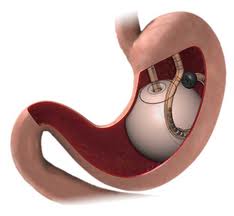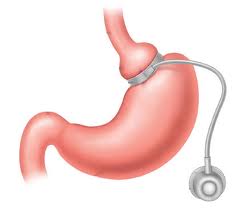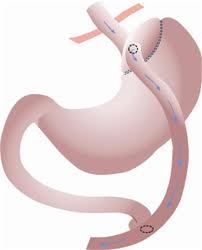Everything You Need to Know about Bariatric Surgery and its Benefits, Risks and Types
| Author: Manoja Kalakanti
Ever wondered who is best suited for bariatric surgery? People who have a BMI greater than 40, or who are more than 100 pounds overweight, are ideal candidates for the surgery. There are other criteria for consideration as well, like the patient should have at least two obesity-related diseases like type II diabetes, hypertension, sleep apnea or other respiratory problems.
Patients with regular complaints such as fatty liver disease not resulting from alcoholism, osteoarthritis, abnormal cholesterol and triglyceride levels, heart disease or gastrointestinal disorders. The patient might also notice that they’re unable lose weight even if they’ve been trying for a long period of time.
Also, when you go for an advanced surgery like this, you need to be sure about the clinic you go to for the surgery, in addition to the pre and post-surgery care. You can also consider bariatric surgery, if:
- You have tried all kinds of non-surgical methods like diet and exercise, but despite your best efforts, have not been able shed the flab.
- You have been under the guidance of an intensive management team comprising of a multidisciplinary team with specialists who are helping you get healthier.
- You promise to go for a follow-up treatment even after your surgery is over at a specialized obesity clinic.
- You are strong and healthy enough to withstand long hours of anesthesia and consequently, the complicated surgery.
Bariatric Surgery Procedure
Bariatric surgery usually takes about 2-2 ½ hours, and the doctor or surgeon will inform the family after the surgery gets over.
- The patient is taken to the recovery room; and will be reeling under the effects of anesthesia, after 2-3 hr.
- Once he/she is fully recovered, the patient will be taken in a wheelchair to their specific bed or their room in the hospital.
- Patients may have to be supported with the help of a nasogastric tube (NG), Intravenous fluids and a Foley catheter.
- The NG is usually removed 1-2 days later after an x-ray of the new pouch has been taken.
- After 2-3 days, the patient can start drinking water and 60 ml of some kind of health supplement.
- The patient will have to be predominantly on liquids for at least the first 2 weeks after surgery, drinking the supplements as meal replacements.
- The liquids which patients can have are decaffeinated tea or coffee, skimmed milk, broth, water, fresh and diluted fruit juice and ice candies, preferably sugar-free.
- The patient must be very careful to stay away from sweetened and/or carbonated beverages and also avoid beverages which are very sweet.
- The average hospital stay ranges from 5 to 7 days depending on the health of the patient.
- Patients must be healthy enough to drink enough amounts of fluid before they can be released from the hospital.
Benefits of Weight Loss Surgery
If you have made up your mind about going for a bariatric surgery, try and weigh the pros and cons of the same, by considering the following points.
- The immediate effect of weight loss surgery is that most people keep losing weight for 18-24 months. Some people may regain some of the weight they had lost, but only a few regain the entire weight they had taken so many pains to lose.
- If patients are really looking to lose weight to improve their health condition, then most of them will really benefit from weight loss surgery. Diseases like diabetes can controlled by the help of this surgery. Some of the other health conditions like hypertension can also be controlled, but it might take a little longer.
Risks and Side Effects of Bariatric Surgery
Since bariatric surgery is indeed a major surgery, it is not completely bereft of risks or side-effects. Some of the major risks and side-effects are as follows,
- The most relatively common side effects include vomiting, nausea, diarrhea, bloating, excessive perspiration, flatulence, and dizziness.
- Some of the more serious side-effects include infection, excessive bleeding, stitches getting infected, blood clots on the legs, which might move to the heart and lungs. But it is also true that this happens only in the rarest of the cases.
- There are long-term implications of weight loss surgery as well, one of the most common problems being the “dumping syndrome,” a condition in which food travels quickly via the small intestine.
- Other symptoms include weakness, nausea, sweating, diarrhea, faintness right after eating, and if you eat too many sweets, you will end up feeling really weak. It can affect about 50% of people who have had weight loss surgery. You may need to change your diet and avoid foods with high sugar content; and replace them with high-fiber foods to prevent any disease.
- There might be possibilities of gallstones forming if you happen to lose a lot of weight quickly. To help prevent the same, your doctor may even advice you to take supplemental bile salts for the first six months of your surgery.
- You will have to ensure that you get enough nutrients, as it is harder for your body to imbibe nutrients from food after the surgery.
- Because sudden and extreme weight loss and nutritional deficiencies can impact a developing baby adversely, surgeons often advice pregnant women not to go for this surgery as it might prove to be detrimental to health.
Life after Weight Loss Surgery
Weight loss surgery can show really good results as far as weight lost is concerned, but it shouldn’t be regarded as a magic procedure to cure obesity. But if you really want to get great results, you need to stick to a strict dietary regime all throughout your life, so that you can avoid gaining back the weight which adversely affects your health.
This well-structured plan will include:
- A strictly controlled diet
- An exercise regime
- The sudden weight loss may affect the way you look, especially resulting in loose skin which may cause you to suffer from low self-esteem.
- You must have moderate expectations from the surgery. It isn’t as easy as it seems, the surgery won’t make your weight problems just vanish. Careful thinking and proper aftercare should be considered, before thinking of going for a surgery of this kind.
Bariatric surgery is considered the most effective weight-loss procedure for the morbidly obese. The impact of the surgery is well accepted, and rapid progress in recent years has made it a much safer surgery option than it was before. One has to ensure that the first follow-up has to be within a month after surgery.
Studies have substantiated that bariatric surgery is one the most effective weight-loss options suitable for the morbidly obese. A person is regarded as morbidly obese when he/she has a BMI higher than 40 kg/m2. The major portion of the weight loss occurs within the first 1 to 2 years of surgery. It goes without saying that drastic weight loss can also bring down the risk of diseases associated with obesity.
Different methods of Bariatric Surgery:
Exercise in conjunction with diet sometimes fail to make people with extreme and morbid obesity lose weight. Bariatric surgery is as the name suggests is a surgery that is performed to help people struggling with obesity to lose weight. Scientific reports have substantiated that bariatric surgery lowers the death risks for such patients who are severely obese, ensuring that they make suitable changes in their lifestyles too.
This surgery is performed in different methods according to the weight of the persons and their health conditions.
- Gastric Balloon
- Gastric Band
- Gastric Sleeve
- Gastric Bypass
- Gastro Imbrication
- Endo Barrier
Gastric Balloon:
The gastric balloon procedure also known as endoscopic intragastric balloon is a procedure where an inflated silicon balloon is inserted in the stomach for about 6 months, so that there is less room for food. As a result of which patients:
- Feel more satiated quickly while eating and therefore tend to eat less.
- Tend to lose most of their weight as much as 30% in 6 months
- Have significant improvements in health as far as diabetes, and heart-related issues and joint/bone disease are concerned.
Procedure: This is the simplest method in this type of surgery. This method is performed to those who want to lose 10-15kgs of weight. In this method, a balloon is sent into the stomach through mouth, without making any cut on the body. This balloon is filled with saline which will be blue in colour. Due to this the size of the stomach will be decreased. This process completes just in 15 minutes. Sometimes, air sac can be used instead of balloon filled with saline.
Benefits:
- This method of surgery doesn’t have many side effects compared to other processes.
- This surgery is performed without making any cut on the body.
Limitations:
This method doesn’t have many side effects. But one side-effect will be this method may not be suitable for people :
- Having BMI <27.
- Who consume alcohol and illicit drugs.
- Have had previous open abdominal surgery.
- People who are psychologically unstable.
Gastric Band:
In this process the inflatable silicon band placed around top portion of the stomach. This process can be completed within 45 minutes by laparoscopy. After 6 weeks the band will be tightened by filling it with saline. Due to this process 50% of the targeted weight can be lost.
- 50% of the total weight can be lost due to this process.
- As the band can be adjusted the amount food intake can be altered according to persons health condition.
Limitations:
- This method is not suitable for people
- Whose weight is 50-70 kgs more than the ideal weight.
- People who consume food in small quantities for more number of times.
Gastric Sleeve:
In this method the stomach size is reduced by 25% of it original size by surgical removal of a major part of the stomach in shape of a major curve. The open ends are connected to form sleeve or a tube in shape of a banana. In this process the part which is responsible for secreting the hormone “Grehlin” will be cut which results in decrease in hunger. This is a permanent process and persons between the ages 16-70 years can be operated by this process.

Benefits:
- As a major part of stomach is detached through this surgery the person’s food intake will be decreased and results in effective weight loss.
Limitations:
This method is irreversible, because a part of stomach will be removed.
- BMI level should be more than 60
- This method may lead to B12 vitamin deficiency.
Gastric Bypass:
In this surgery the stomach is divided into upper and lower pouch and then the small intestine is bypassed to connect both the parts. As the size of stomach is reduced in this process, the intake of food will be reduced. This process is useful for losing weight rapidly.
Benefits:
- Rapid weight loss can be attained through this process.
Limitations:
This process will be performed to the persons
- Whose BMI>40
- After undergoing through comprehensive preoperative evaluation and have multi-disciplinary support for optimum outcome as this process cannot be performed to psychologically unstable people.
Apart from the above surgeries there are other surgeries like Gastric Imbrication and Endo Barrier.
In the Gastric Imbricaton method there won’t be any cuts but a part of stomach is folded. In Endo Barrier method a small tube like structure is inserted at the lower part of stomach .
All these procedures are made safe and simplified through laproscopy, but they are not completely without side effects. Therefore, the decision to undergo any of the above surgeries should be taken, under the guidance of experienced doctors.











Manoja Kalakanti